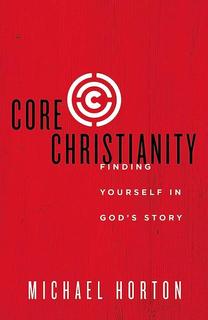There have been different views by Bible-believing Christians on what happens to our souls after we die. The majority view of Christians—I think for good reason—is that we’re conscious. “To be absent from the body is to be present with the Lord,” the apostle Paul tells us in 2 Corinthians five. He also goes on in verses 1–8 to tell us, “We still longed to be further clothed.” Even in that intermediate state our soul longs to be embodied in flesh.
It’s very different from the Greek philosophical world that taught it was a good thing when you died because your soul would finally be freed from its bodily tomb. The apostle Paul says very clearly here that “our soul longs to be more fully clothed” is longing for the resurrection. It’s aching for the resurrection. And that’s why it’s the intermediate state—it’s not the final state.
A lot of Christians think that salvation is going to happen when you die. It’s not—that’s the intermediate state. And that’s a glorious thing. I’d rather my soul be without my body in the presence of the Lord, as Paul says, than any other alternative. Nevertheless, the greatest thing is not that our souls are free from our body—that’s not a good thing. To be in the presence of the Lord is a good thing. But the great thing is to be in the presence of the Lord bodily in the resurrection as we are glorified and enjoy God forever in that age to come.
One other passage I’d recommend is Revelation 6:9–11:
When he opened the fifth seal, I saw under the altar the souls of those who had been slain for the word of God and for the witness they had borne. They cried out with a loud voice, “O Sovereign Lord, holy and true, how long before you will judge and avenge our blood on those who dwell on the earth?” Then they were each given a white robe and told to rest a little longer, until the number of their fellow servants and their brothers should be complete, who were to be killed as they themselves had been.
I lean towards saying that we’re conscious and alive in the intermediate state. I think we have the passages to support that. But this is the really important point: This is the intermediate state. Our final salvation is the resurrection of the body and life everlasting.
People are often confused about this because, in the New Testament, death is sometimes referred to as a time of sleep. Paul uses that word in 1 Corinthians 4. But I think the real reason for this language is that, for the believer, death has been transformed. It’s no longer curse; it’s coming to life. It’s entering into the presence of the Lord. In Philippians 1:21, Paul says, “For to me to live is Christ, and to die is gain” because he’s being with Christ, which is far better (Phil. 1:23).
At the end of the day, this isn’t a hill to die on. Whether you believe that the soul goes immediately into the presence of the Lord or sleeps, in either case, the first thing the soul knows after death is the face of its Savior. That’s the glorious thing and the ultimate hope we have—the resurrection of the body and life everlasting.
This article is part of our Frequently Asked Questions series. Listen to Michael Horton answer this question on Core Radio here.






